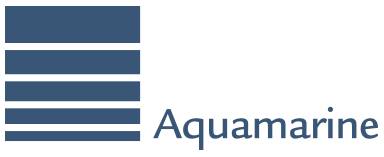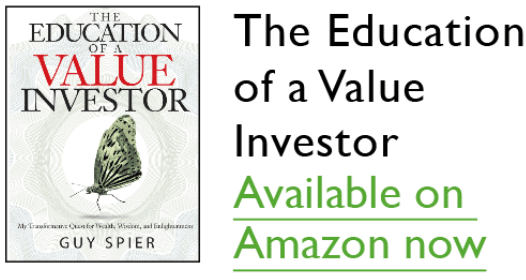Maybe if enough people read this article, I will stop getting grief for not shorting enough…
Two quotes that I really like:
“99 per cent of shortsellers are incapable of doing it”
And the following:
And who are the long-only, or mostly long-only, managers worth looking at? It’s a hard call because most hedge fund managers, even if they are mostly long, like to brand themselves as long-short because, well, what’s a hedge fund if it doesn’t hedge?
Long-only is the new black in quest for ‘alpha’
By James Altucher
In the past three weeks I had two funds of hedge funds and one $10bn family office based in Geneva call me and essentially say the exact same thing: We’re starting to look at long-only hedge funds.
“We’re tired of paying management fees to people who are guaranteed to lose money over time,” one of them told me, referring to investing in shortselling funds, or even long-short funds that have primarily lost money on the short side.
Another good friend of mine who has been an arbitrageur his whole career is looking at setting up a hedge fund focused on long-only in the energy space. “Long-only” is the new black. What’s the basic idea and is it a bearish sign on the markets if suddenly everyone cares about only going long?
First off, it’s not bearish at all. It’s smart. It’s very difficult to create alpha from shorting. In other words, when someone invests in a skilled shortseller they are hoping for two things: 1) when the markets are down the shortseller is up, and 2) when the markets are up, the shortseller is not down as much as the markets are up. This last condition is the “alpha”.
But here’s the problem: 99 per cent of shortsellers are incapable of doing it. As an example, the Dedicated Short Bias Index of the CSFB/Tremont hedge fund index was negative in 2001. What this tells us is that in a year with terrorist attacks, a dotcom bust, a recession and negative returns in nearly every market index, the shortsellers still couldn’t make money.
So does this mean that funds of hedge funds are just going to go long the market? Not at all. The managers at FoFs are probably even more skilled at hedging than a typical hedge fund because they have to monitor their risk across many diverse strategies.
If they have a manager who is primarily long, say, small cap energy stocks, they’ll figure out the right ETFs, futures, and options to hedge and if the manager they invest in has alpha, then the FoF will have positive returns. This is the way the game is changing. The focus will be on alpha generation through stockpicking.
And who are the long-only, or mostly long-only, managers worth looking at? It’s a hard call because most hedge fund managers, even if they are mostly long, like to brand themselves as long-short because, well, what’s a hedge fund if it doesn’t hedge?
I like many of the activist funds that are out there. David Nierenberg, who runs the D3 Family of Funds, has a focused portfolio where he takes an active role in almost all of his investments.
This is worth paying management fees for: someone who is going to get his hands dirty and have the type of portfolio that can generate outsize returns. He just increased his positions in Electro Scientific Industries (ESIO) so that he now owns 10.8 per cent of the company, up from 9.5 per cent, and RadiSys (RSYS), disclosing an 11.1 per cent stake in the company.
I also like Barington Capital run by Jim Mitarotonda. Its biggest positions include Pep Boys (PBY), an 8.1 per cent stake in the company, and Stride Right (SRR), where it owns 4.3 per cent of the company. Barington has been up every year since its inception in 2001. The other possibility, although perhaps difficult from a marketing point of view, is. . . to forget about hedge funds. There are some great value-oriented mutual funds that are far better than the average hedge fund.
For instance, I like the Heartland Value Fund. William Nasgovitz has managed the fund since 1984, which is a lot more consistent than any hedge fund manager I know except for George Soros. It has returned more than 17.3 per cent annualised over the past five years and was up more than
25 per cent in 2006.
Then there’s Royce Microcap Fund, probably my favourite mutual fund to follow. Run by long-time Royce manager Whitney George, who runs several of the Royce value-oriented funds, the five-year return is 16.61 per cent annualised, and this
year so far they are up 20 per cent.
I’ve been following the exploits of the Al Frank Fund ever since it was the biggest investor in Invision in early 2001 when it was trading in the low single digits (the bomb detection company sold to GE for $50). I subscribe to the Prudent Speculator, a newsletter from John Buckingham, the fund’s manager. He tends to focus on stocks trading at or near cash with high cash flows.
I also like the Fairholme Fund. What impresses me about Fairholme is not that it was up 16.7 per cent in 2006 or that its five-year return is 16.25 per cent a year, but that in 2002 it was only down 1.6 per cent.
For a long-only product that tends to focus on midcap stocks (which was down 25 per cent in 2002), that strikes me as incredible. Fairholme is run by noted value investor Bruce Berkowitz.
And finally Dreman Smallcap Value, run by David Dreman, super-investor and Forbes columnist. The fund is up 30 per cent year-to-date and has a three-year record of 22.5 per cent annualised return.
While the rest of the hedge fund industry continues to dart around for a valid business model, you can be safely ensconced inside the funds of solid stockpickers, generating consistent returns and the long sought after, elusive “alpha”.
[email protected]
Copyright The Financial Times Limited 2007




